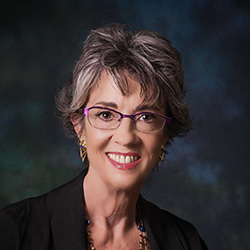By Robyn Stone
Immigration policies can help address the global workforce crisis, writes Robyn Stone. But those policies must benefit all nations, not just wealthy nations.
Whenever providers of aging services gather for international meetings, our conversations inevitably focus on how much we have in common, the similar challenges we face, and how an innovative solution that works in one country has the potential to help all providers deliver high-quality services and supports to a rapidly growing older population.
This unanimity always gives me new hope in our ability to address our shared challenges, no matter what area of the globe we call home.
I had quite a different experience at the Social Care International Workforce Summit in Glasgow a few weeks ago. The summit took place a day before the Global Ageing Network’s biennial conference, which was sponsored in conjunction with Scottish Care and the National Care Forum, the leading provider associations in Scotland and England.
From the start of the summit, I noticed the significant representation of younger, developing countries in the conference room. I hoped the audience’s diversity would provide us with different perspectives on our current and future workforce crisis.
I was not disappointed.
In particular, our discussion about immigration and migration reminded me that providers of aging services don’t necessarily need to be in lockstep to make meaningful progress as we strive to address the unprecedented growth in our world’s older population.
During that discussion, providers from the United States and other developed nations expressed the hope that immigrants from developing countries would help them mitigate their severe worker shortages, which are on track to reach crisis proportions.
In response, representatives of developing countries urged their colleagues to view immigration solutions more critically. They explained that immigration is, essentially, a trade issue between wealthy countries seeking to attract foreign-born workers and developing countries from which most immigrants hail. They pointed out that the out-migration of their citizens to developed countries is draining human resources and exacerbating workforce challenges at home. They warned us about ethical issues related to the exploitation of workers by those who arrange their migration and those who hire them.
Summit attendees listened intently and respectfully to their colleagues. By the end of the day, we agreed on the need to develop new models of immigration that address trade and ethical issues while also helping to expand the pipeline of aging services professionals, including frontline caregivers, around the world.
One model, which I proposed as we wrapped up the summit, might invite foreign-born workers to live and work in developed countries for a limited time before they were required to return home. During their stay, these individuals would receive training and learn skills they could bring back to their home countries. Such an approach would help all parties: developed nations would receive short-term assistance to ease their workforce crises while simultaneously creating a trained workforce that could serve older adults in developing countries.
I’m sure potential solutions to immigration-related challenges will evolve as we bring the expertise and experience of additional providers to the discussion. We have a long way to go before our preliminary discussions in Glasgow bear fruit. But I’m very excited about the potential we unleashed during the International Workforce Summit.
During our gathering, for example, we discovered that providers around the globe are willing to explore equitable solutions to the challenges involved in expanding the pipeline of frontline caregivers worldwide. We discussed the potential of using our collective knowledge and experience to develop global standards and core competencies that would support a more ethical and equitable approach to migration as a solution to the workforce crisis.
We also recognized the Global Ageing Network’s critical role in bringing together providers who want to make a difference. As a respected international provider organization, the Global Ageing Network—together with international partners like the National Care Forum and Scottish Care—is well-positioned to participate in world forums that raise awareness about the aging services workforce crisis while also proposing provider-endorsed immigration policies that are both equitable and ethical.
We can make progress in addressing our global workforce crisis. But we must develop solutions that benefit older adults in all nations, not just wealthy nations. And we must promote those solutions as a global provider community composed of members who may have different viewpoints but who are united in our unwavering commitment to the health and well-being of the world’s older adults.

Robyn I. Stone, DrPH, is senior vice president of research at LeadingAge, and co-director of the LeadingAge LTSS Center @UMass Boston. Her widely published work addresses long-term care policy and quality, chronic care for people with disabilities, the aging services workforce, affordable senior housing, and family caregiving.
